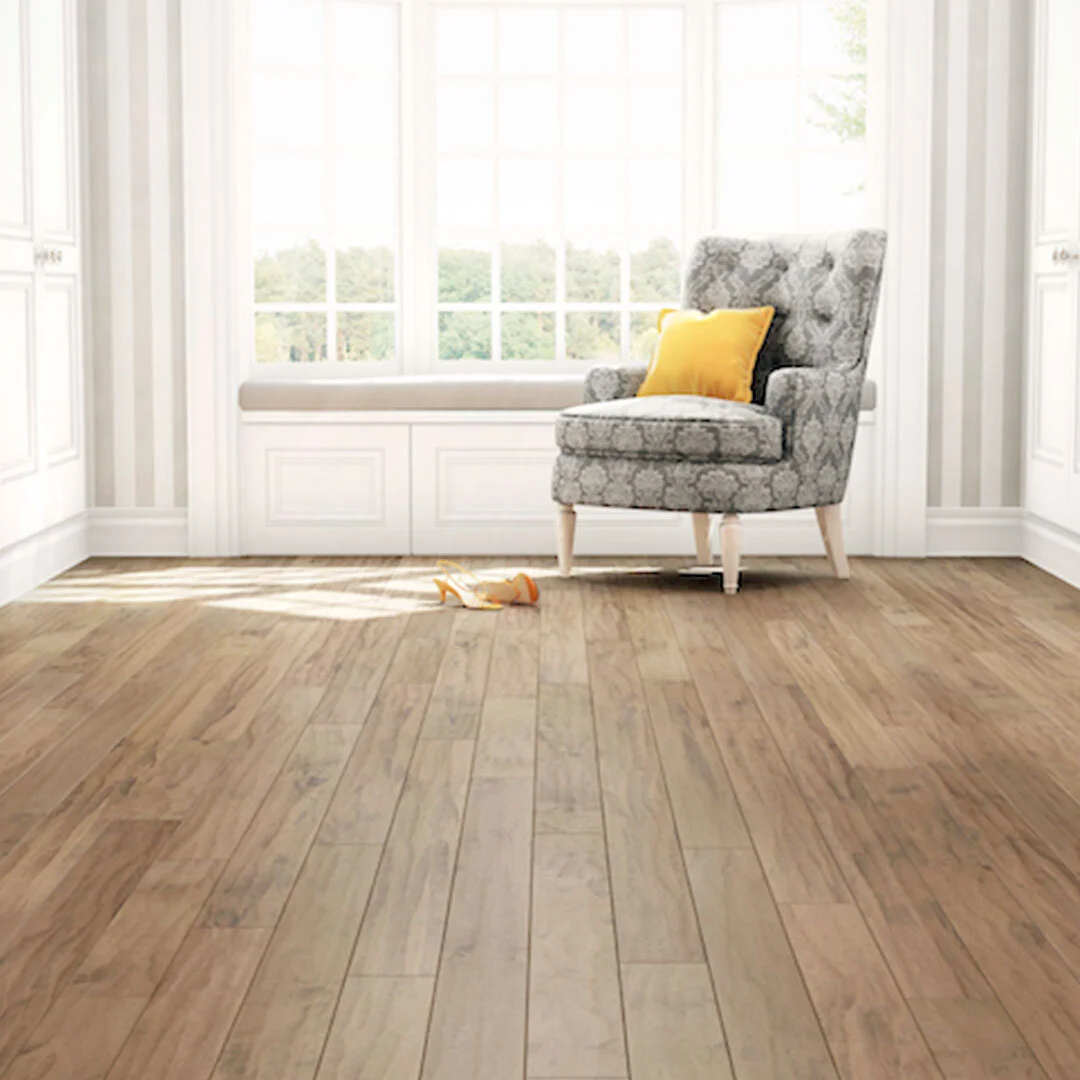
Longevity in your Flooring
Lifespan
Solid Hardwood
Solid hardwood typically lasts at least 30 years and as much as 100 years, since it can be sanded down and refinished several times.
Engineered Hardwood
Engineered hardwood flooring generally lasts 20 to 30 years.
Best for Lifespan: Solid Hardwood
Because its solid wood construction allows it to be sanded and refinished several times, solid hardwood flooring comes out on top when it comes to longevity.
Sizes
Solid Hardwood
Standard hardwood flooring planks are 3/4 inch thick, 2 1/4 inches wide, and sold n various lengths from 12 to 84 inches. Other thicknesses and widths are also available, though solid hardwood flooring is rarely more than about 4 inches wide.
Engineered Hardwood
Engineered hardwood boards are often thinner, with 3/8- to 9/16-inch-thick boards common. Engineered hardwood is often sold in much wider boards, up to 7 inches, and the lengths typically run 12 to 60 inches
Best for Sizes: Tie
There is no particular winner here, unless you have a particular preference for narrower boards (in which case solid hardwood will be preferable for you), or wider boards (in which case engineered hardwood flooring will be a better choice).
Resale Value
Solid Hardwood
In appearance, solid hardwood is not noticeably different from engineered hardwood, but real estate professionals and potential home buyers may place a premium on a solid hardwood floor for its greater longevity.
Engineered Hardwood
Engineered hardwood flooring will rarely be a turn-off to prospective buyers, though they may recognize that these floors have a shorter lifespan.
Best for Resale Value: Solid Hardwood
Both solid hardwood and engineered hardwood are premium flooring materials that add good real estate value to your home. Solid hardwood may have the edge here, since it lasts longer than engineered hardwood flooring.


